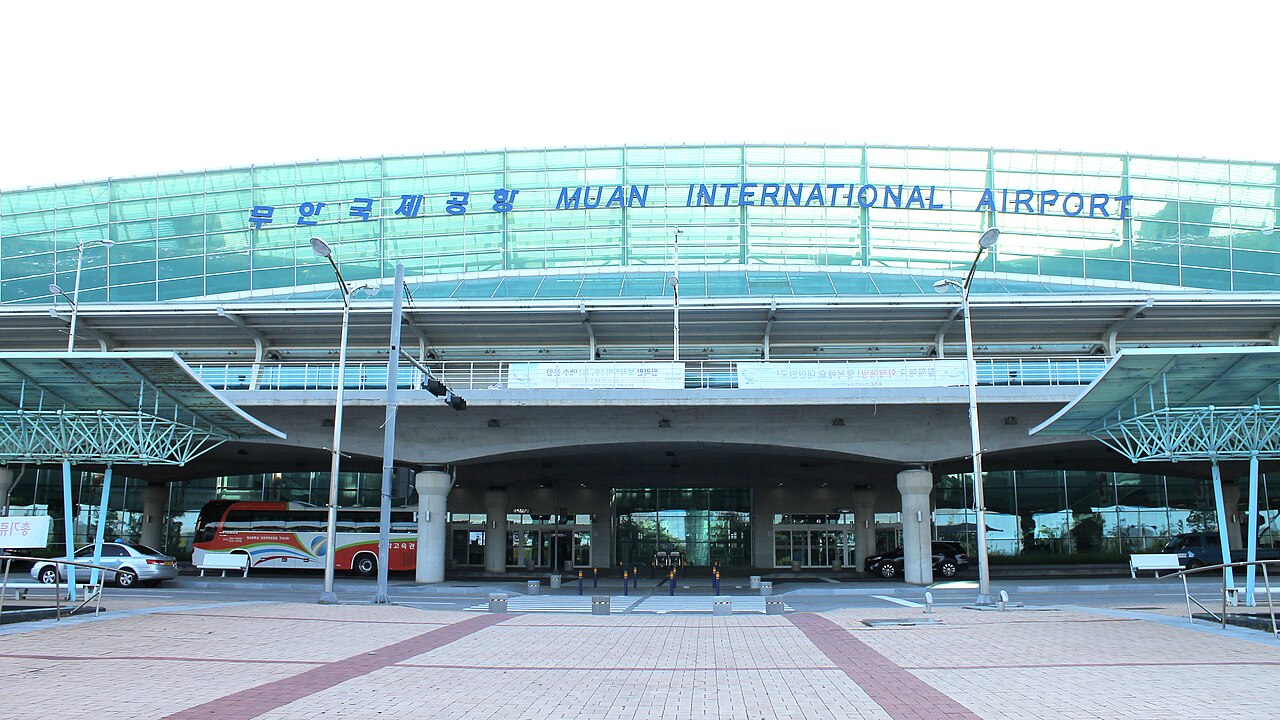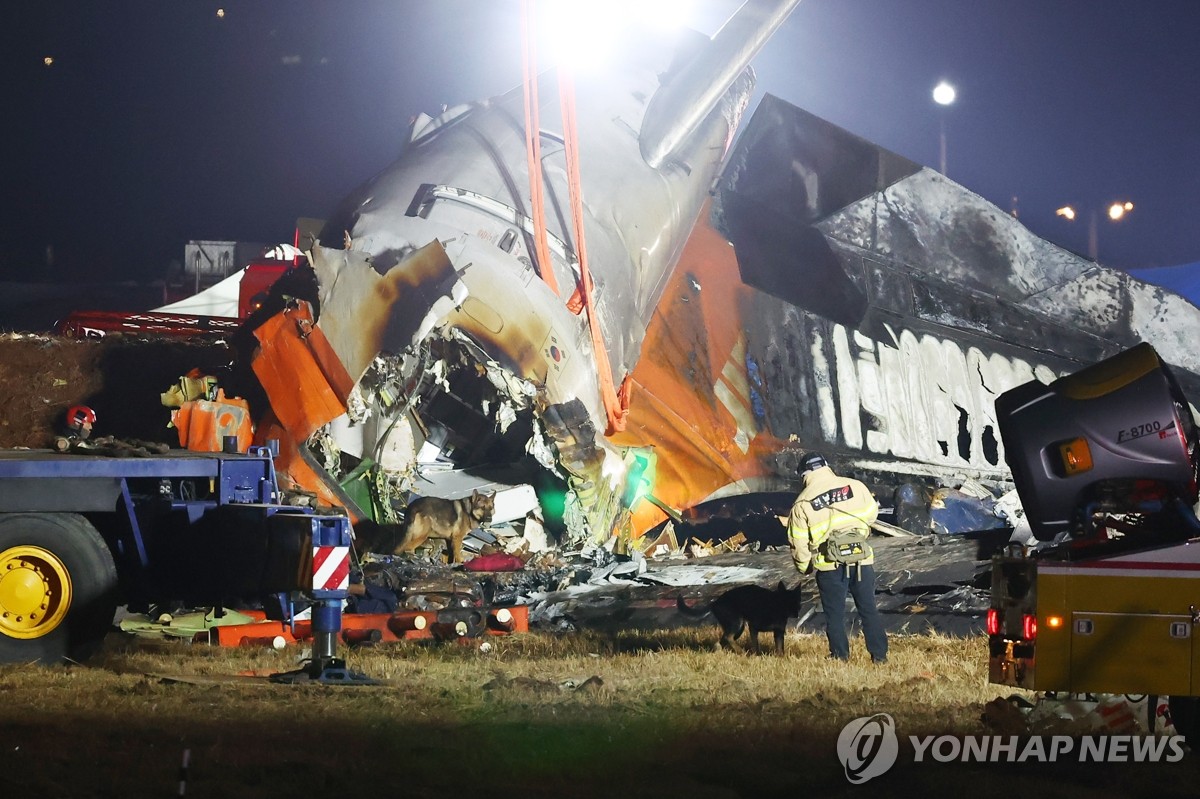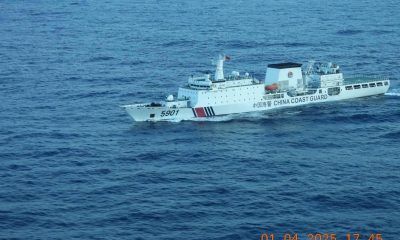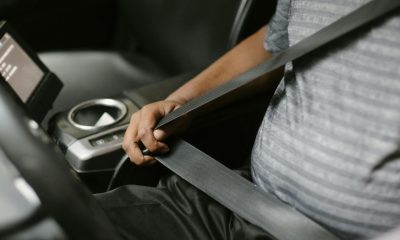Headline
179 confirmed dead out of 181 aboard in South Korea plane crash

務安国際空港外観 무안국제공항 외관 모습 Muan International Airport in Muan-gun(county), Jeollanam-do(province), Republic of Korea(South Korea) (Photo By User:LERK/Wikimedia Commons, CC BY-SA 4.0)
MUAN, South Korea – A passenger jet carrying 181 people belly-landed and exploded at an airport in South Korea’s southwestern county of Muan on Sunday, killing 179 with two others having been rescued, authorities said.
The accident happened at around 9 a.m. when the Jeju Air plane, carrying 175 passengers and six crew members, veered off the runway while landing at Muan International Airport in the Muan County, South Jeolla province, about 288 kilometers southwest of Seoul.
The plane skidded along the ground without its landing gear deployed, crashing into a concrete wall before bursting into flames with a deafening explosion.
It was the deadliest aviation accident ever on South Korean soil, and the third most fatal by death toll involving a South Korean airline.
In 1983, a Soviet fighter jet shot down a Korean Air flight after it had strayed into Russian airspace, killing all 269 aboard. In 1997, a Korean Air aircraft crashed in Guam and left 225 people dead.
Just after 9 p.m. (local time), authorities confirmed 179 deaths from the accident and said two crew members were rescued.
The two were each transported to a different Seoul hospital after receiving treatment at hospitals near the airport.
“After the plane collided with the wall, passengers were thrown out of the aircraft. The chances of survival are extremely low,” a firefighting agency official said earlier Sunday.
“The aircraft has almost completely been destroyed, and it is difficult to identify the deceased,” the official said. “We are in the process of recovering the remains, which will take time.”
The 181 people were aboard the Boeing 737-800 plane that had departed from Bangkok at 1:30 a.m. It was scheduled to arrive in Muan at around 8:30 a.m.

The passengers were all Koreans, except for two Thai nationals.
Of those on board, 82 were men and 93 were women, ranging in age from as young as three to 78 years old. Many were in their 40s, 50s and 60s.
A temporary morgue has been set up inside the Muan airport to lay the bodies of the victims.
Officials believe the landing gear failure, possibly due to a bird strike, may have caused the accident. They began an on-site investigation to determine the exact cause.
They have retrieved both the flight data recorder and the cockpit voice recorder from the wreckage, though it could take months for the exact cause to be determined.
The land ministry said in a briefing that an airport control tower had warned of a bird strike at 8:54 a.m. The pilot declared “mayday” at 8:59 a.m., and landed the plane at 9:03 a.m. without landing gear deployed.
The South Jeolla authorities raised emergency alerts to the highest levels and deployed all available rescue and police personnel to the accident site.
Acting President Choi Sang-mok declared the Muan county as a special disaster zone as he visited the crash site to instruct officials to make all-out efforts for search operations.
Choi also expressed deep condolences to the bereaved family members and promised to offer them all possible government assistance.
Choi also declared a seven-day national mourning period, effective starting Sunday. It will last until midnight on Saturday.
The presidential office convened an emergency meeting of top secretaries earlier in the day and decided to maintain a round-the-clock emergency system for timely responses to the search and other operations.
At the meeting, presided over by presidential chief of staff Chung Jin-suk, the officials also discussed ways for interagency coordination on the probe into the accident, and medical and other support.
Acting National Police Agency Commissioner-General Lee Ho-young also ordered officials to mobilize all available resources and work with firefighting and other related agencies to help with the rescue efforts.
Jeju Air CEO Kim E-bae issued an apology and extended condolences to the family members who lost their loved ones, vowing to provide all necessary support to the victims’ families.
“Regardless of the cause, I take full responsibility as the CEO,” Kim said.
Jeju Air pledged an all-out effort to support the surviving families, financially and otherwise, citing its US$1 billion insurance plan.
Kim later traveled to the Muan airport to apologize to the families in person, but was met with angry reactions. Kim only arrived at around 8 p.m., some 11 hours after the crash.



























